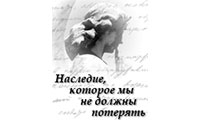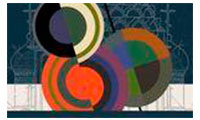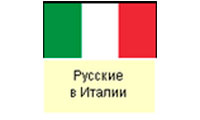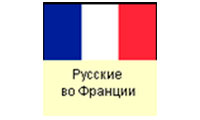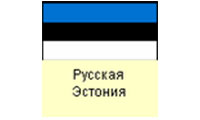The Old Believers of Riga
Arnold Podmazov
Old Believer Societies in Riga
The majority of Old Believers’ societies has emerged as a result of Old Believer public activity that was made possible by the Tsar’s Ukase (decree) of April 17, 1905 that granted equal rights to all confessions, including the Old Believers’. As soon as it became possible to legitimize the status of the Old Believers’ Church, Old Believers’ did not only register communities that had houses of prayer, but also founded public societies in order to conduct charitable and educational work. Such societies sprang up in all cities with substantial number of Old Believers’ population, first of all in Riga and Dvinsk (Daugavpils).
The Old Believers’ Society of Latvia was founded in Riga in 1908, first as the Old Believers’ Mutual Help, Charity and Education Society, and functioned intermittently in 1908–1915, 1923–1940, as well as from 1994 to the present. At first one of the Society’s main activities was charity and material assistance to its own members in case of death of family members. At the same time, the Society was also very active in the field of education: it has opened its own public library, organized lectures on important religious and moral issues. The most significant impact in the Society’s history was made by one of its founders and its first President Feodor Pavlov (1872–1933) who was elected to the Constitutional Assembly of Latvia.
After the reestablishment of the independence of Latvia, the Society continued its work in education, as well as its work in research and publication, striving to preserve the spiritual heritage of Latvian Old Believers in particular, and of the Old Orthodoxy, in general. In collaboration with academic research institutes, the Society continues to organize conferences and seminars, publishes collections of scholarly essays (Russians in Latvia [Russkie v Latvii, 1997, 2002], Old Believers in Latvia [Staroverie Latvii, 2005] etc.), as well as, since 1999, the journal The Pomorian Messenger [Pomorskiy Vestnik]. There is a wide range of academic contacts with scholars from Latvia, Lithuania, Estonia, Russia, Poland, Belarus, Germany, France, and the United States. Many of these scholars frequently visit the Society and the events that it organizes.
Among the members of the Old Believers’ Society, there is I. Klementyev, a member of the Saeima of the Republic of Latvia, and I. Ivanov, a member of Riga City Council. Illarion Ivanov and and Jelena Matyakubova have been invited to participate in the work of the President’s Consultative Council on National Minorities. Since 1994, Illarion Ivanov was the Chairman of the Board of the Old Believers’ Society of Latvia.
The I.N. Zavoloko Old Believers’ Society has received its registration in 1999. The group of the Society’s founders consisted of the members of “The Group of Zealots for Ancient Tradition” which was active in 1927–1940 under the leadership of Zavoloko himself, and participants of the Grezn Old Believers’ Choir. The Society’s activity is mainly devoted to the study, preservation, and popularization of the Old Believers’ cultural, historical, and spiritual heritage, as well as the preservation and study of the works of I. N. Zavoloko himself. In 2005 and 2007 the Society organized two international conferences under the title “Zavoloko Lectures” where the scholars, as well as prominent Old Believers from Latvia, Estonia, Poland, Ukraine, Belarus, Russia, and Japan took part. The papers of the first conference were published in the collection of essays International Zavoloko Lectures [Mezhdunarodnye Zavolokinskie Chteniya, 2006]. The second volume of essays is currently in print. Since 2000, the Society publishes a newspaper Spiritual Sword [Mech Dukhovny], as well as other literature (e.g., A Pilgrim Ascending the Mountain: A Collection of Essays by I. N. Zavoloko [Strannik, iduschiy v goru, 2004] etc.). The Society also operates its own website (www.starover-pomorec.lv) and participates in joint projects with other non-governmental societies in Latvia and in other countries. The Society engages in collaboration with the Baltic International Academy: in 2005 the latter was presented with a gift from the Society, an exhibition of photographs devoted to the memory of Ivan Zavoloko. Since 2002, the Society is led by Pyotr Alekseyev.
The Grezn Old Believers’ Choir, founded in 1993 and directed by Maria Selushinskaya, functions under the auspices of the Zavoloko Society. The choir maintains the traditions of Znamenny chant. The choir often performs in Riga and Latvia, and often gives concerts abroad at the invitation of the Old Believers in Estonia, Poland, and Belarus. The repertoire of the choir contains liturgical hymns, as well as spiritual poems, a special genre of folk religious songs performed in everyday setting at home. The “spiritual poem,” as a special form of Russian literary culture, took shape in the Medieval Rus, but later spread widely and evolved among the Old Believers. Until the beginning of the 20th century, the “spiritual poem” had existed among Old Believers nearly exclusively in the form of oral tradition. It was Ivan Zavoloko who became one of the first in Latvia who collected and systematized “spiritual poems” and in 1930s published two anthologies of “spiritual poems” used by Latvian Old Believers. These anthologies were reprinted in 2006 under the auspices of the Zavoloko Society.
The present day Old Believers’ societies draw on the historical experience of social and educational work, gained by the Old Believers in the 1920s and 1930s. In the course of the last decade there is a growing interest in the phenomenon of Old Believers’ tradition both from the younger generation of Old Believers, and from the general public. The Old Believers’ societies play a significant role in stimulating this interest, being open to constructive dialogue with all who cherish Russian history and culture.
Content
- Introduction
- Schism and “Old Belief”
- Beginnings of the Old Believers on the territory of Latvia
- Confessional Characteristics of Old Believers in Latvia
- Old Believers’ Church Building and Liturgy
- Books and Book Culture
- Iconographic Traditions of Riga Old Believers
- Pomorian Old Believer Traditions of the Art of Copper Casting
- Old Believer Churches in Riga
- Old Believer Societies in Riga
- Old Russian Residents of Riga and Old Believers in the 18th century
- The Years of Prosperity and the Years of Misery: Riga’s Old Believers in the 19th Century
- Riga Old Believers at the Turn of 19th and 20th Centuries
- Riga Old Believers in the Independent Latvia (1918–1940)
- Riga Old Believers During the Soviet Period (1940–1941, 1944–1991)
- Riga Old Believers after the Restoration of Latvia’s Independence
- Photogallery
- About the Project. The Old Believers of Riga: 250 Years of Cultural Historical Experience



